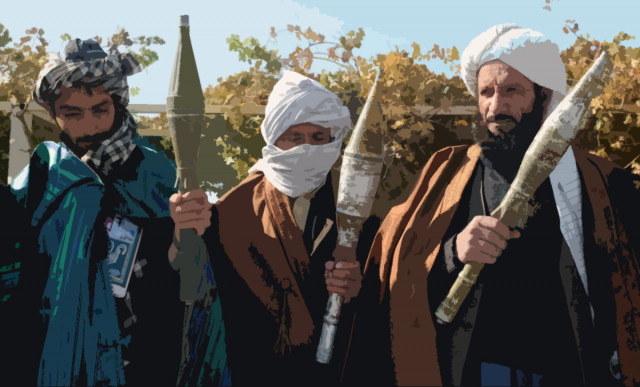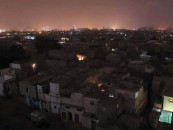Analysis: A wake-up call to all
The incident is a stark reminder of how easy it is for anybody to sabotage the peace process.

The actual control and the direction that a peace process will take in the future will have everything to do with the consensus amongst the various factions of the TTP. PHOTO: AFP
The incident is a stark reminder of how easy it is for anybody to sabotage the peace process between the government and the Taliban. It is also a timely warning to the doves in our security establishment to see and understand how difficult it would be for the civil administration with its limited resources to guarantee the safety of the general public after the army has withdrawn from these settled areas. The attack has not occurred in FATA, an insecure area, but in a settled district where the army claims to have established the writ of the state.
The targeted killing of a serving General Officer Commanding (GOC) is a big blow to the morale of troops engaged in fighting miscreants and factions of the Taliban. The operational activities of a GOC are always a closely guarded secret. The standard operating procedures (SOPs) require that the methods and means of travel are to be constantly reviewed and are subject to change even at the last moment.
It is however his non-operational commitments such as the inauguration of various schools, bridges and roads which are part of the rehabilitation and rebuilding process that necessitate the sharing of his schedule with others. Without the knowledge of the exact time and place of the GOC’s travel plans, the perpetrators of this crime could not have planted the fatal IED.
Now to the peace process. Should negotiating peace with the TTP be our favoured option? One questions the inability of Pakistan army to undertake a major pre-emptive operation against the TTP on the pretext that it can only carry out such an operation after a seal of approval from the politicians. And whether the actual way forward is the APC (All Parties Conference) to develop a consensus on negotiating with the Taliban.
Had this been taken as a serious matter of national security, then reviewing many dimensions and effects of this war would have taken many days of deliberation. Even the question and answer sessions should have taken many days considering that most party heads that attended the APC were for the first time exposed to the whys, hows and whens of this war on terror that the army had chosen to fight under a policy the guidelines of which originated from its own former chief Pervez Musharraf.
Unfortunately it is not the much-trumpeted consensus of Pakistan’s political elite that will have any substantial bearing on exercising control and sustaining any peace process with the TTP. The actual control and the direction that such a peace process will take in the future will instead have everything to do with the consensus amongst the various factions of the TTP, now fighting under their own separate agendas as well as leadership.
Whichever group that has carried out this latest target killing is not in favour of any peace process or its success. The truth is that this may not be an isolated group. There are many splinter groups that may not be under the central control of the TTP and who may not be interested in negotiating peace.
The tight spot that our security establishment finds itself in today is of its own making. Had the Taliban been deterred by an army willing to hit them hard and punish them for every loss they inflicted on it, they would have by now been sufficiently weakened. So far the army has continued to run after two rabbits and thus unable to catch none. The sacred doctrine of strategic depth that keeps its hands tied and prevents it from going all-out against all Taliban regardless of them being good or bad. Carrying out limited operations against selected targets thus hardly ever breaks the back of the militants despite huge deployment in Fata. The continuity of this military strategy has only allowed the status quo to prevail. With every tactical defeat and loss of face that the army suffers at the hands of the Taliban, its professional capability, credibility and competence is affected. In turn the Taliban demonstrate that they continue to exist as an unchallenged serious threat and force to be reckoned with.
THE WRITER, A RETIRED LIEUTENANT COLONEL, IS A RESEARCH SCHOLAR WHO IS DOING PHD IN CIVIL-MILITARY RELATIONS FROM KARACHI UNIVERSITY.



















COMMENTS
Comments are moderated and generally will be posted if they are on-topic and not abusive.
For more information, please see our Comments FAQ